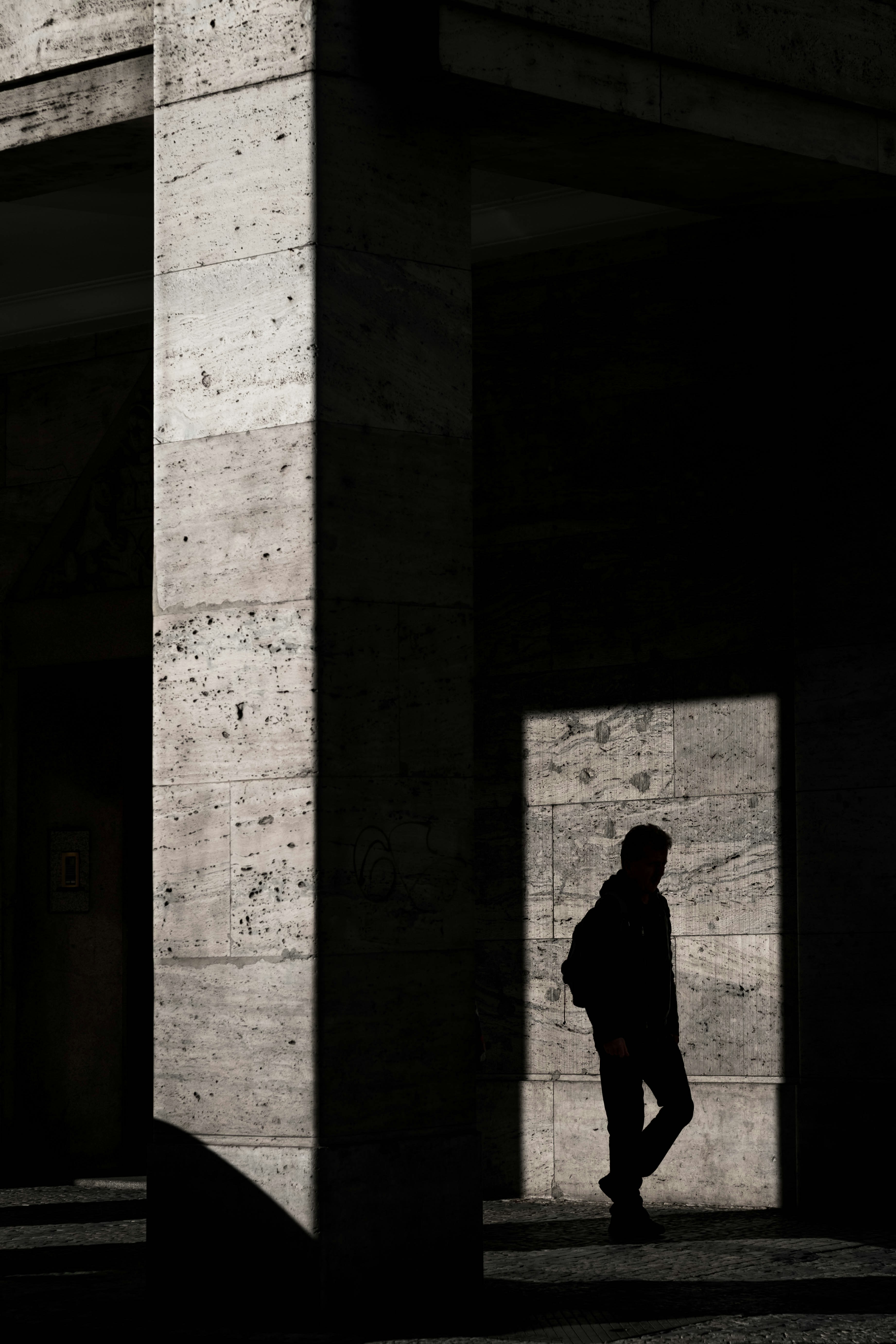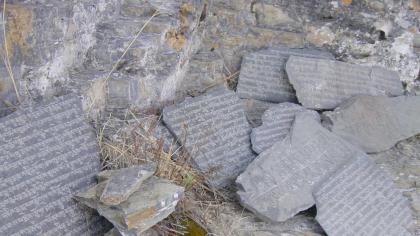December 28, 2021|כ"ד טבת ה' אלפים תשפ"ב Shemos 5782 - Being A "Sar Liros" - Someone Who is Willing to Really See Others
Print ArticleThis week, I had the special privilege to meet a special Jew. His name is Rabbi Mendel Alperowitz, and he is the Chabad Emissary (Shliach) to Sioux Falls, South Dakota. Rabbi Alperowitz is one of only two rabbis in all of South Dakota, and he has a connection with 95% of the approximately 500 Jews in the state.
Our community had an opportunity to listen to him describe the holy work that he does each and every day, connecting Jews with their heritage, no matter their background, no matter their life experience. And as I was listening to Rabbi Alperowitz tell stories about driving 4 hours to deliver matza to families before Pesach or ensure a woman had a proper Jewish burial, I couldn’t help but ask myself, “where does he find the inspiration, the drive, to do this work?”
Lucky for me, he told us: It comes from the very first message the Lubavitcher Rebbe, Rav Menachem Mendel Schneerson, delivered to his chassidim. On the 10th day of Teves, the day he ascended to become the Rebbe, he taught his chassidim that as Jews we have a sacred responsibility: To uncover the unique spirituality found in every single Jew.
Moshe Rabbeinu’s first meeting with Hashem goes about how we would have thought. The individual who will be the Av HaNeviim, the greatest Navi in the history of the Jewish People, has his first conversation with God introduced by an extraordinary miracle: The burning bush.
Let’s go through the steps of the initial encounter:
(ב) וַיֵּרָא מַלְאַךְ יְקֹוָק אֵלָיו בְּלַבַּת אֵשׁ מִתּוֹךְ הַסְּנֶה וַיַּרְא וְהִנֵּה הַסְּנֶה בֹּעֵר בָּאֵשׁ וְהַסְּנֶה אֵינֶנּוּ אֻכָּל:
An angel of Hashem presented himself to Moshe in a flame housed within a bush, and MOSHE SAW, and behold! The bush was one fire, but it was not being consumed!
(ג) וַיֹּאמֶר מֹשֶׁה אָסֻרָה נָּא וְאֶרְאֶה אֶת הַמַּרְאֶה הַגָּדֹל הַזֶּה מַדּוּעַ לֹא יִבְעַר הַסְּנֶה:
And Moshe says: Let me go take a look and see this amazing sight! Why is the bush not being consumed!?
(ד) וַיַּרְא יְקֹוָק כִּי סָר לִרְאוֹת וַיִּקְרָא אֵלָיו אֱלֹהִים מִתּוֹךְ הַסְּנֶה וַיֹּאמֶר מֹשֶׁה מֹשֶׁה וַיֹּאמֶר הִנֵּנִי:
And Hashem saw that Moshe turned to see, and He called out to Moshe from within the bush, and He said, “Moshe, Moshe!” And Moshe said, “Here I am!”
And it’s fascinating to take a look at the back and forth regarding Moshe’s response:
Moshe says, “wow, what a phenomenon! I gotta check this out!” And says the Torah: ONCE HASHEM SAW that Moshe came over to look, ONLY THEN Hashem calls out “Moshe Moshe!” The implication is that if for some reason Moshe would have walked by and not noticed this phenomenon, that Hashem would have let him go. He would never have chosen Moshe.
And it seems strange. Because…Was it really so difficult to assume someone would want to stop and look at this burning bush!? There are far simpler phenomenon that draw our attention. Presumably, anyone or at least most people walking by this bush would have stopped to take a look! What was so special about Moshe’s willingness to turn and look, to be Sar Liros?
The Seforno explains that when the Torah says Hashem saw “KI SAR LIROS” that Moshe turned to notice it means להתבונן בדבר, Hashem saw that Moshe didn’t only see the bush, but he began considering what it meant: Why is this here? He saw there was something special, something unique and spiritual, so he decided to grab the opportunity and come close.
And continues the Seforno: ויקרא אליו אלקים. להודיעו, כאמרם ז"ל בא לטהר מסייעין אותו. It was only once Moshe showed that interest that Hashem then called back to him. As chazal tell us: When a person wants to become tahor, when a person has a desire to come close to Hashem, He provides him or her with assistance. Once we show Hashem that we’re interested in growth, He gives us a boost.
So, says the Seforno, once Hashem saw, “Ki Sar Liros”, that Moshe was interested in “coming close” not only physically but also spiritually, “VAYIKRA ELAV ELOKIM”, then Hashem called him over. MOSHE! MOSHE! According to Seforno, it wasn’t just that Moshe stopped to SEE what was happening with the bush. It was that he took the time to consider what it really meant. If this is here, there must be more in this place. This place must be special. And it was only then that HKBH said, “THIS is the person who will lead My People”
But there is a second approach I want share with you as well. And this comes from the Medrash Rabba: “Rebbi Yitzchak said: ‘What does it mean that Moshe ‘turned to see?’ God said, “he is one who turns to notice the pain of the Jewish People in Egypt”.
What does it mean that Hashem saw that Moshe was a SAR LIROS, that He was turning to see? Not that he turned to see the burning bush! That he took the time to see and feel the pain of Am Yisrael. This, says Hashem, is what makes him the person who will be their shepherd. According to the Midrash, Hashem is not referring to Moshe’s response to the bush at all! In fact, if Moshe hadn’t stopped to take notice, maybe Hashem would have chosen him anyway. What was it that Hashem saw about Moshe? That he was, at his core, a SAR LIROS, he was someone who stopped to SEE OTHERS. To see their pain and to reach out help.
And where did Hashem see this? In the stories that immediately precede the episode with the burning bush. Because if there is one word that would epitomize the character of Moshe Rabbeinu throughout those initial stories, the word is Vayar. He saw.
Vayigdal Moshe, Vayetzei El Echav, VAYAR bisivlosam! When Moshe grows up, he goes out to his brothers. Why? To see their suffering. Rashi there says: “Nasan Einav V’libo lihiyos meitzar aleihem”. Moshe didn’t just look. But he really saw them with his heart, to feel their pain. He sees an Egyptian beating a Jew, and says the Torah, “Vayifen ko vacho, vayar Ki ein ish” – He looks around and sees there is no one else to help. So, he steps up! So says the medrash: Why did Hashem choose Moshe? Because he decided to take a look at the burning bush? No, because it was his nature to be a SAR LIROS, he was a person who knew how to truly see others.
And as I was thinking about this idea, I couldn’t help but think that the message of this first story about Moshe Rabbeinu and the first message of the Lubavitcher Rebbe are really one in the same: Be a person who stops to notice other people. Be a person who stops to notice spirituality in others and in the world around you. Be someone who is SAR LIROS, who takes the time to notice.
And while, of course, this is a mida that is necessary to be a successful shliach in a far-flung Jewish community, being sar liros is an equally important mida for all of us. The best parents, the best spouses, the best friends are those who take the time to notice, to truly see the other person. To take the time to listen, to just be there for the most important people in our lives.
As I listened to Rabbi Alperowitz tell his incredible story about his family’s dedication to the Jews of Sioux Falls, South Dakota, it dawned on me: We don’t all have the ability to give physical gifts to others, but we can all give the most valuable gift of all: to be able to see and appreciate the special, unique spark in every single person.
To learn more about Rabbi Alperowitz and his work, visit: https://www.jewishsd.org/




